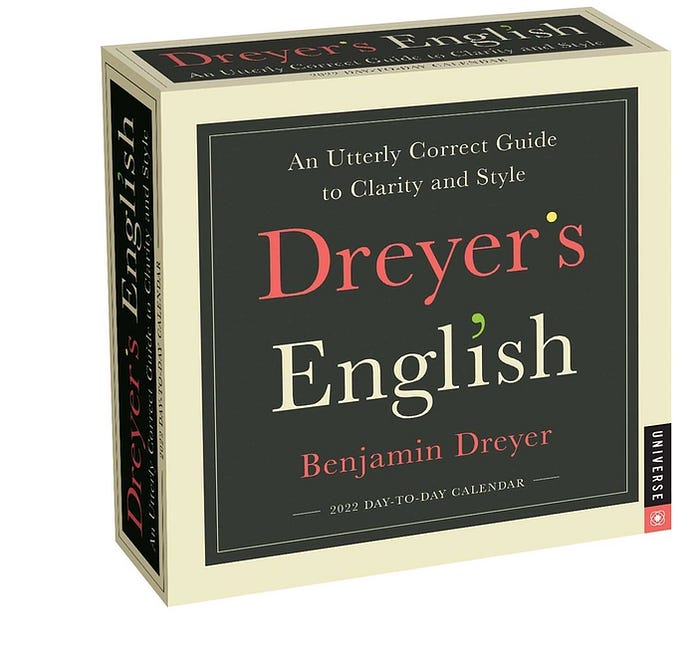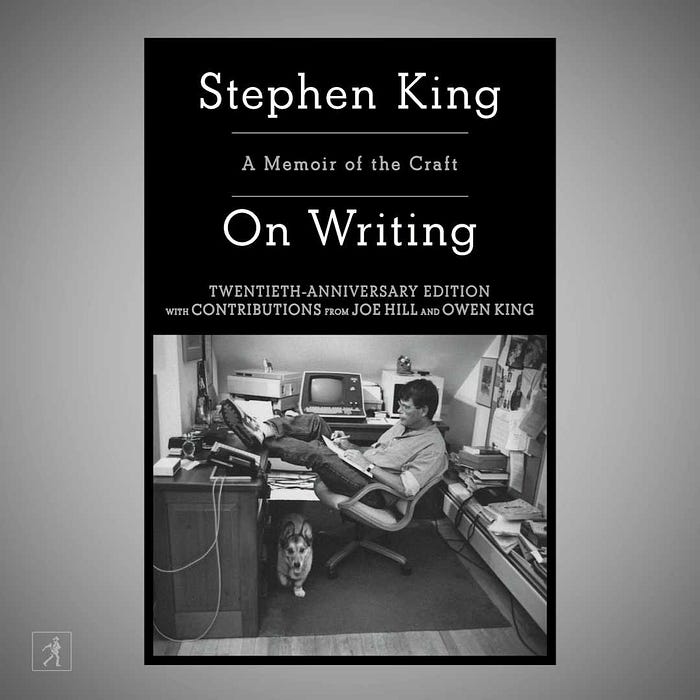3 Books Every Creative Writer Should Read to Improve Their Writing
Here are 3 Interesting Books That Have Helped Improve My Writing
Today I'm showing you three books you can read to improve your writing. All of these books helped me, so I hope that they're helpful to you as well. I've also included the links to these books on Amazon so that you can order them.
1. Dryer's English: An Utterly Correct Guide to Clarity and style by Benjamin Dreyer
Dryers English: An Utterly Correct Guide to Clarity and style by Benjamin Dreyer, the copy chief of the publisher; Random House.

This book is an updated guide on style because it was published in 2019; it is up-to-date and adapted to our modern language.
It answered a lot of questions that I had. For example, I've always wondered if the grammar rules in school are outdated. Some of these rules include:
-Never end a sentence with a preposition.
-Never split an infinitive.
And what the author tells us is that these rules are in place for a reason, but it's okay to break them now and then for the sake of clarity. And it gives us examples of why it's okay to break these rules.
He also tells us how to avoid common errors, including Danglers, and answers, particular questions that you may not have thought of. For example, would you say;
"If I were to do this," or "if I was"?
So if you read the book, the author will answer that question.
He also tells us to use commas, colons, semicolons, and apostrophes.
It's easy to mix up all of these different forms of punctuation, and he also tells us whether or not we should use the series comma, Oxford comma, and that's the comma that comes right after the second to the last term in a list of items.
For example, the comma circled here is an example of a series comma and he defends putting this comma in the book.

It's really up to you whether or not you use it. My favorite quote is when the author says;
Only Godless Savage eschews the series comma.
I agree with the author. I also use this comma. You should read the book and find out why this is beneficial in many cases.
My favorite section is "The Trimmable," in which the author gives us examples of common phrases that we often use that are repetitive. Some of these phrases include; bonus, record, blend, end result. And the words that I have italicized here are not needed at all.
2. Stephen King's on Writing a Memoir Of The Craft

This book is pretty famous. You might know about it if you are interested in creative writing.
Stephen King's On Writing a Memoir Of Craft this book is part memoir/reflection, style guide, and suggestions for writers at all stages of their career journeys, so I love this book as someone who enjoys creative writing.
So it's helpful for you if you are interested in fiction, poetry, or anything related. It answered a couple of questions, including how Stephen King himself, the master of horror and suspense, develops a character or storyline. He gives us examples of how he created the characters of Annie Wilkes in Misery and Johnny Smith in The Dead Zone.
He also tells us how he integrates symbolism into his stories, and I love this book because the author gives us glims into his process.
Many of us tend to ask, do authors intend to include specific symbols in their stories, or does it just happen? But he tells us how certain symbols, such as blood, represent sacrifice, maturity, and family ties, like in the book Carrie, tend to come about tensionally.
He tells us how to write a description, dialogue, and advice on what we need in our toolboxes to write effectively, including vocabulary, grammar, and style. My favorite rule from him is;
The adverb is not your friend.
because adverbs tend to tell and not show. Something I learned in this book is not to use them that often.
My favorite section is, "Furthermore, Part one: Door shut, Door open." This section of the book shows the first draft of the story that Stephen wrote, and it shows his handwritten edits on this story. I love seeing this glimpse into his thought process, and I think you will enjoy it too.
3. The Art of X-ray Reading: The Secret to 25 Great Works of Literature That Will Improve Your Writing

The Art of X-ray Reading: The Secret to 25 Great Works of Literature Will Improve Your Writing by Roy Peter Clark is a fantastic book. If I had to choose a favorite among these books, this would be my favorite; this book changed my life. If you think the first two books are intense. Reading this book will help because it brings close reading to another level.
So in this book, multiple chapters discuss specific books or work through the author's X-ray lens. There are writing lessons at the end of each chapter that you can apply to your work. There's a section of great quotes from the literature analysis at the end.
I will give you examples for analyzing the symbolism of ferryboats and the famous green light in The Great Gatsby.
He showed me so much that I never considered paralleling this book with Greek mythology and other works. And as someone who has read The Great Gatsby multiple times, I was shocked by how much I learned from reading this chapter.
The author talks about syntax in Macbeth; for example, Why did Shakespeare write the "Queen my lord is dead instead of saying," "My Lord, the Queen is dead," or "the Queen is Dead, my lord"?
And those phrases might sound overly similar, but if you read this book, the author will tell you how intentional that arrangement of words was. For example, he discusses imagery of birds and bees in Their Eyes Were Watching God.
He talks about how MFK Fisher made recipes enjoyable in How to Cook a Wolf, and he also exposes hidden clues planted in specific short stories, such as Flannery O'Connor's A Good Man Is Hard to Find.
So he talks about how characters' names and tomb motifs are included throughout the book to foreshadow the story's tragic ending. I loved learning about it personally, just as an avid reader and a fan of all of these authors myself.
These are my three top books for creative writers, which have improved my writing insignificantly, and I think you should check them out and tell me what you think. And also, if you find this article interesting, please share it with your friends.

